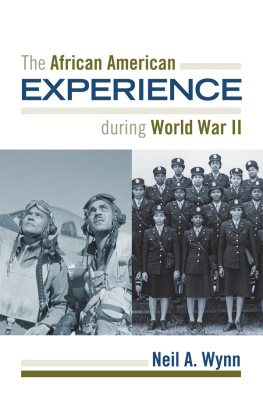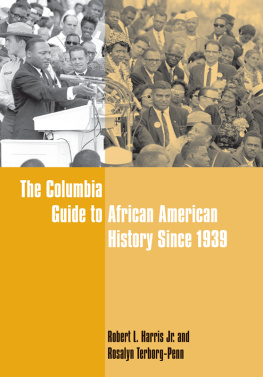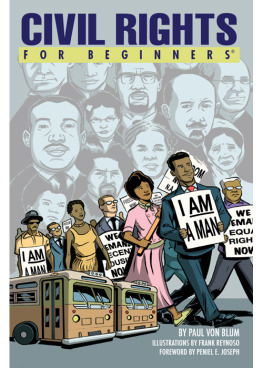Introduction
The African American and War in Historical Context
Once let the black man get upon his person the brass letters US, let him get an eagle on his button, and a musket on his shoulder, and bullets in his pocket, and there is no power on earth or under the earth which can deny that he has earned the right of citizenship in the United States.
Frederick Douglass, Should the Negro Enlist in the Union Army? National Hall, Philadelphia, July 6, 1863 .
As this quotation from the former slave and leading black spokesman of the mid-nineteenth century, Frederick Douglass, indicates, African Americans had always realized the importance of military service in furthering their demands for equality; white Americans, too, had been aware that military participation carried implications regarding claims for equal citizenship. While black Americans hoped to serve as equals in order to press their claims for full citizenship, white Americans often opposed black military service for exactly the same reason. The struggle over this previously contested issue reached new levels during World War II.
More than five thousand African Americans fought in the War of Independence, and individuals like Crispus Attucks, the runaway slave who died in the 1770 Boston Massacre, or Peter Salem, another slave who fought at Bunker Hill in 1775, are often seen as representatives of the American revolutionary principles of freedom and equality. However, this would be a real oversimplification. The victory of the American colonists was also a victory for slave owners: as Douglass later remarked famously, July Fourth was a white celebration, not one shared by African Americans. Not only did several of the signatories of the Declaration of Independence own slaves, but when George Washington, also a slave owner, took command of the Continental army, he specifically excluded blacks from serving as soldiers. It was the British, led by former governor of Virginia Lord Dunmore, who offered freedom to slaves who took up arms against the American rebels. Only then did the colonists accept free blacks and slaves as soldiers, promising them their freedom in return. As a result, African Americans fought in almost every campaign of the war; yet, slavery was still written into the Constitution and continued as a crucial element of life in the South. The revolutionary ideology did, however, weaken the institution in northern states, and the first antislavery societies began to emerge at approximately the same time as the Revolution.
African Americans fought with their countrymen against the British again in 1812, and although several units served with Andrew Jackson at the battle of New Orleans, this did little to deter the spread of slavery in the South. As was the case in the War of Independence, many African Americans escaped slavery by joining the British rather than remaining with the Americans. However, ultimately it was another war and the contribution of African Americans in it that brought the institution of slavery to an end. The issue of black military service arose at the very start of the Civil War in 1861, but initially determined not to make the conflict one about slavery, President Abraham Lincoln ordered black volunteers turned away. Many Northerners supported the presidents position not on strategic grounds for fear of alienating the border slave states but on racial grounds and the belief that African Americans would make bad soldiers. Additionally, black military service would imply an equality few whites were prepared to recognize. Only as the war dragged on did such attitudes change, and in the preliminary Emancipation Proclamation of 1862, President Lincoln not only indicated that slavery would end in those parts of the South that continued to resist but also called for black volunteers to fight. The enactment of the proclamation in 1863 meant that the war begun to save the Union had become one to end slavery; black military participation ensured that this would be the case. Slavery ended with the Thirteenth Amendment in 1865, and African Americans gained the rights of equal citizenship and suffrage with the Fourteenth and Fifteenth amendments in 1868 and 1870, respectively.
During the Civil War, 186,097 African Americans served in 167 all-black army regiments, and almost 40,000 died; another 29,000 served in the navy. However, they did not serve as equals. Until 1864 black soldiers earned half the amount paid to whites and served predominantly in noncombat roles. There were few black officers, and other white troops often viewed the white officers of black regiments with contempt. However, many black soldiers did see combat in several theaters, and they fought courageously in a number of important battles, most famously at Fort Wagner in July 1863, when the Fifty-fourth Massachusetts Regiment led the assault on the Confederate positions. African Americans suffered high casualties during the war, at least in part because the Confederate troops adopted a policy of no quarter where black soldiers were concerned. Black men, women, and children were massacred at Fort Pillow, Tennessee, in April 1864, and rebel forces killed wounded black prisoners at Poison Springs, Arkansas, the same month.
Twenty-three African Americans received the Medal of Honor for their bravery in the Civil War, among them six seamen. In recognition of African Americans military contribution, in 1866 Congress established four segregated, black, regular army units on a permanent basis: the Ninth and Tenth cavalries and the Twenty-fourth and Twenty-fifth infantries. All four regiments served in Texas and Kansas and saw action against various Native American tribes. It was Native Americans who nicknamed the black fighters Buffalo Soldiers, a label that persisted through to World War II. The black regiments saw action in Cuba in 1898 during the war with Spain. Five members of the Tenth Cavalry earned the Medal of Honor, and several received citations for their bravery during the battle of San Juan Hill in which they fought beside future president Theodore Roosevelts Rough Riders. Initially, Roosevelt and others recognized the contribution of the so-called Smoked Yankees in positive terms, but later in his career Roosevelt suggested that the black soldiers accomplishments stemmed simply from determined white leadership and that they had to be prevented from deserting the battlefield.
After the Spanish-American War, the African American units served in the Philippines and took part in suppressing a local uprising there. Despite their contribution to an essentially imperialist war, when the black troops returned to their bases in Texas and the Southwest to serve once again, they met with contempt and often faced discrimination and violence. In 1906 the first battalion of the Twenty-fifth Infantry was transferred from Nebraska to Brownsville, Texas, to serve beside the Texas National Guard. The local white population and white soldiers resented the black soldiers presence equally, and black soldiers were attacked or mistreated on several occasions. During the night of August 14, 1906, several shots were fired in the town by a group of about twelve unidentified people. A local inhabitant was killed, one was wounded, and a policeman was also injured. It was assumed that black soldiers had shot up the town, but when no one confessed or indicated who was responsible, all 167 men in three battalions were given dishonorable discharges and barred from further military or federal service. Senator Joseph B. Foraker of Ohio protested this decision and insisted on an investigation, which discovered that the evidence against the black soldiers was weak. In 1909 Foraker persuaded Congress to allow the discharged men to reenlist, but the initial decision was not overturned until 1972, when the one surviving black soldier was paid $25,000 in compensation.





